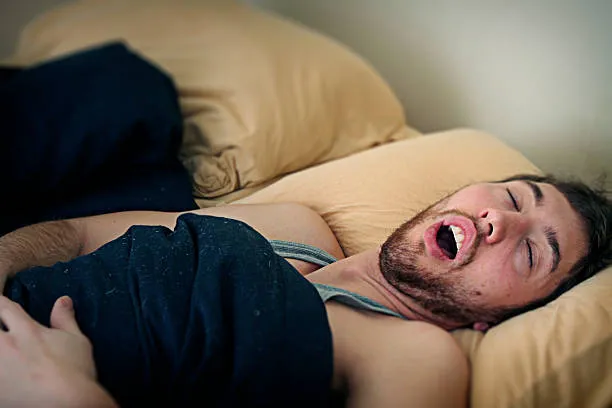As you drift off to sleep, the muscles in your face gradually relax, allowing your mouth to open naturally. According to Dr. Christine DeMason, an associate professor of otolaryngology at the School of Medicine at the University of North Carolina, as cited by Huffpost, mouth breathing can occur at any time during the night, but it is more common during deep sleep stages, where there is less control over the muscles of the upper airway.
Several factors can trigger mouth breathing, including allergies, colds, certain medications, nasal septum deviation, nasal polyps, enlarged tonsils, snoring, sleep apnea, sleeping on one’s back, and smoking. All of these can lead to nasal airway obstruction, prompting individuals to breathe through their mouths during sleep.
The health implications of mouth breathing during sleep are manifold. It can lead to bad breath, dental cavities, gum diseases, oral inflammations, and infections. Furthermore, mouth breathing can impact the cardiovascular system, potentially leading to complications such as cardiovascular diseases, high blood pressure, and strokes. Additionally, it is often associated with sleep-related breathing disorders like snoring and sleep apnea, disrupting sleep and affecting overall quality of life.
There are various treatment options aimed at stopping mouth breathing during sleep, and the choice will depend on the underlying cause of the issue. Common solutions include clearing nasal passages to reduce obstructions, changing sleep positions to encourage nasal breathing, myofunctional therapy to strengthen facial and tongue muscles, using oral appliances to keep airways open, Continuous Positive Airway Pressure (CPAP) machines to deliver a steady stream of air pressure, and surgical interventions to correct anatomical obstructions. It is highly recommended to consult a healthcare professional for an accurate diagnosis and to determine the best treatment option for each individual case.
